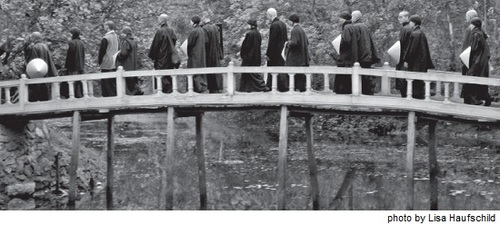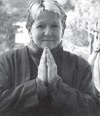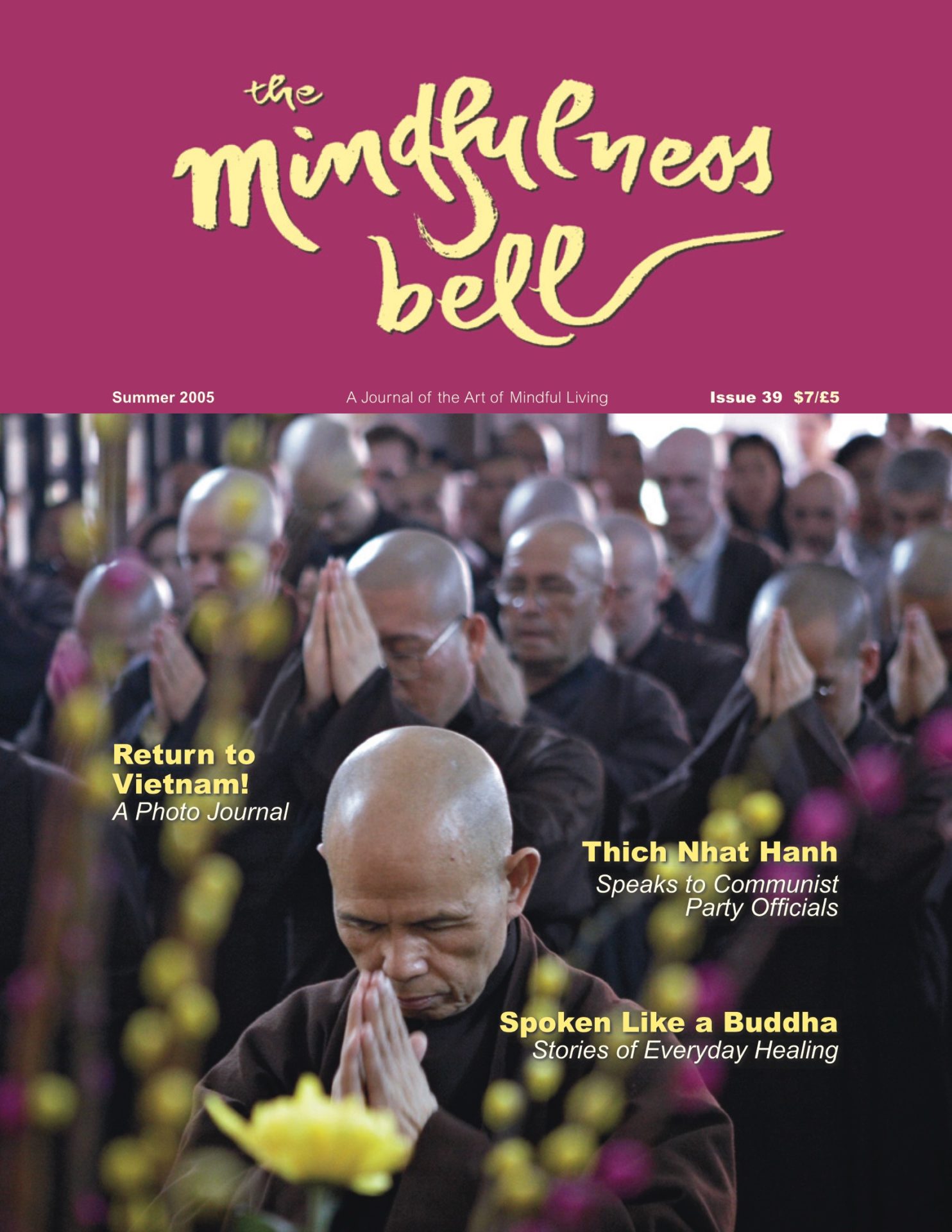
By Judith Toy
When I smoked cigarettes it was two packs, sometimes three, a day. My record for lit cigarettes simultaneously burning either in ashtrays or in my hand was four. Sometimes I chewed gum, too. Half cups of cold coffee were strewn about my office. I was skinny and nervous.
It was my habit to stay in constant motion. What bogeyman did I think would strike me if I stopped moving,

By Judith Toy
When I smoked cigarettes it was two packs, sometimes three, a day. My record for lit cigarettes simultaneously burning either in ashtrays or in my hand was four. Sometimes I chewed gum, too. Half cups of cold coffee were strewn about my office. I was skinny and nervous.
It was my habit to stay in constant motion. What bogeyman did I think would strike me if I stopped moving, watching television, listening to radio, eating, reading, writing, jogging, paying bills, talking on the phone? Maybe what was living inside of me following the trauma of the murders of three of my family was anger, even rage. I had no lack of confusion, doubt, greed, self-contempt, jealousy, and ego.
If I stopped, I would have to come face to face with my deeply inadequate self.
The murders of my sister-in-law Louise and my two teenage nephews, Dougie and Danny, brought me to my knees. It was October 15, 1990, and looking back, I see that for me and my family, it was the holocaust. Everything normal about our lives had been shattered; our shock and despair seemed too much to bear.
The DNA evidence proved that Louise, Dougie, and Danny’s lives had been cut short by the boy across the street. Eric was a friend of Dougie and Danny, and had ranked in the top two percent of his high school graduating class. Three weeks prior to graduation, Eric had dropped out of school and began prowling the neighborhood at night. A year later, he stabbed and bludgeoned my family to death.
Eric’s father was the only neighbor willing to be interviewed by the television reporters after the murders. He was like the movie character Rambo, telling reporters, “We’re going to get whoever did this; we have guns and dogs!” This air of retribution was carried out by a mob of people after Eric was arrested in Florida and extradited to Pennsylvania. When Eric was brought back in restraints in the middle of the night, a waiting crowd screamed, “kill him, kill him!”
Two months later, the trial ended with Eric’s confession. From the murder through the trial and confession, my family and I had lost so much hope, we felt like we were going through life wading under water.
Many months later I came face to face with a Soto Zen monk, Patricia Dai-En Bennage, who was to change my life in two important ways: by teaching me how to stop and enjoy my breathing, and by introducing me to the teachings on mindfulness by Thich Nhat Hanh. That was thirteen years ago.
The act of stopping took courage, because I came face to face with my deeply inadequate self. At first when I meditated, guilt and betrayal and rage floated to the surface. I learned that the only way out of my pain was to let it happen ––to go through it. And on the other side of the pain, I was welcomed into paradise through noticing my breath.
Forgiveness a Breath Away
The breath became the gateway to my heart. Because I have learned to stop, sometimes I have felt my heart as an orb of a moonflower on the garden arbor, opening to the sky. I listen to my heartbeat. I let my heart open like a bud, like a leaf unfurling.
I did not plan to forgive the boy who murdered my family. But after five years of stopping, enjoying my breathing, and relaxing every day, I was able to look deeply and understand Eric. He was not a monster, but a boy who had temporarily become a beast when he murdered my family. When I forgave Eric, I felt such a surge of relief that I understood why Jesus said, “Before you enter the temple, forgive.”
Through this insight, I knew Eric was suffering intensely for his actions. And I began to understand that the seeds of violence in our society and in his family partly caused the murders. Eric was serving three consecutive life sentences in prison, with no chance of parole. I began to mentally place myself in his prison cell and hold him gently in my arms. I will never know if this helped him. One day he took a laundry bag and hung himself to death in his cell. When I learned he was dead, I profoundly mourned his passing.
Gratefully, I turned to the refuge of the three jewels — the Buddha, the Dharma, and the Sangha. Realizing that everything changes and that I will sooner or later lose those I love, I began to deeply appreciate the preciousness of each moment. I began washing the dishes as if each one were the baby Buddha, and looking deeply into the eyes of my grandchildren. I allowed my grief to be absorbed by the earth during walking meditation, and felt the earth give back to me, cool grasses soothing the soles of my sometimes weary feet.
During seated meditation, when emotions arise, I try to notice and stay with them. As a pain or an itch arises, instead of moving or scratching for relief, I try not giving in to the urge, but just notice the pain or the itch. How refreshing, not to move or scratch! One hot July evening while sitting, I felt a mosquito sink its proboscis into my scalp and feed. Welcome, my friend! I guess you deserve to live, too, I thought. There was never any swelling or itch from that bite.
The Voice of the Bell in Prison
My husband, Philip, and I take a bell to a medium security prison to share our practice with young inmates, some of whom had known Eric, the boy who murdered my family. The small bell with a beautiful sound is the centerpiece of our practice together. The noise of slamming metal doors and the prison public address system is the background even as we sit and walk in silence. Upon hearing the sound of the bell we breathe three times, returning to the moment. The men named themselves Fragrant Lotus Petal Sangha, a place of refuge.
Healing Both Families
I called and talked with Eric’s mother. We cried together over the four needless deaths in our two families. She said that in the thirteen years since the murders, mine was the first phone call regarding her son. She and her husband have been so shunned that they have become invisible to their family and neighbors and friends. She thanked me and asked God to bless me for making the call.
The first holy truth of the Buddha is that life constantly offers up suffering. Life offered me my deeply inadequate self for transformation. I no longer smoke cigarettes and pace the floors, afraid to stop. In fact, now that I’m walking mindfully on the path of joy, everything in the actual world— the rising sun, the sound of sirens, a crying child, the squealing of brakes, a Mozart sonata, even a war — reminds me to breathe, to breathe in a universe that while full of anguish, will always, always breathe with me.

Judith Toy, True Door of Peace, is co-founder of Cloud Cottage Sangha in Black Mountain, North Carolina. This story is excerpted from her forthcoming book, Sitting on Fire, the Zen of Forgiveness.

